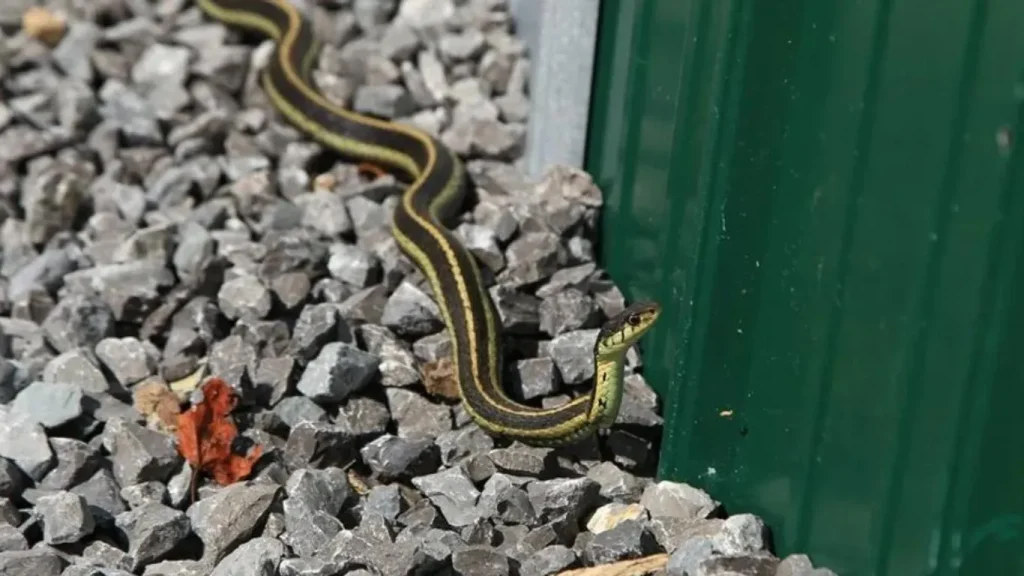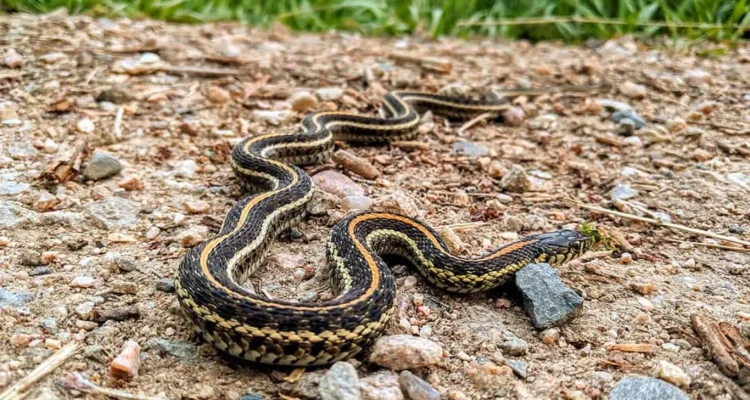Introduction
Snakes in your basement can be a scary discovery. While most snakes are non-venomous and harmless, they’re still unwelcome guests. The key to getting rid of snakes is understanding why they’re there in the first place and knowing the right steps to remove them safely. In this guide, we’ll walk you through the best methods for snake removal, prevention, and dealing with common myths. Ready to reclaim your basement? Let’s dive in!

Why Do Snakes Enter Basements?
Common Reasons Snakes Enter Homes
Snakes typically enter homes in search of food, water, or shelter. Basements provide a cool, dark environment that many snakes find appealing, especially in the summer. Small rodents like mice and rats, which also seek out basements, can attract snakes looking for a meal. Additionally, basements often have cracks or gaps that snakes can slither through.
Types of Snakes You May Encounter
Depending on your location, you might encounter different types of snakes. Common species include garter snakes, rat snakes, and occasionally venomous species like copperheads. Knowing which type of snake you’re dealing with can help you determine the best removal strategy.
How to Know If There Are Snakes in Your Basement
Signs of Snake Presence
Not all snakes make themselves known right away. Some signs of a snake in your basement include:
- Shedded snake skins
- Snake tracks or slither marks in dust
- Droppings that resemble bird droppings with white streaks
- A foul odor in some cases
Areas Where Snakes Hide in Basements
Snakes love dark, secluded places. In basements, they often hide behind boxes, under appliances, or in crawl spaces. Be cautious when moving items if you suspect a snake is present.
Immediate Steps to Take When You Spot a Snake
Stay Calm and Don’t Panic
Seeing a snake in your basement can be unnerving, but it’s important to stay calm. Most snakes will not attack unless provoked.
Clear the Area
Make sure children and pets are kept out of the basement. Avoid making sudden movements that could startle the snake. If you’re not comfortable removing the snake yourself, call a professional.
DIY Snake Removal Techniques
Using a Snake Hook or Tongs
If you’re confident that the snake is non-venomous, you can use a snake hook or long tongs to gently pick up the snake and release it outdoors. Always wear gloves and long sleeves for extra protection.
Creating a Snake Trap
You can create a simple snake trap using a cardboard box and some bait (like a small rodent). Once the snake enters the trap, you can safely relocate it away from your home.
Safe Methods to Remove Snakes Without Harm
Catch-and-Release Techniques
Humane catch-and-release methods are the best way to deal with snakes. Using a bucket and broom, gently guide the snake into the container and release it in a wooded area far from your home.
Using Humane Snake Traps
There are commercially available snake traps that allow you to capture snakes without harming them. These traps are designed to hold the snake securely until you can release it safely.
When to Call a Professional
Signs You Need Expert Help
If the snake is venomous or you’re unsure of the species, it’s best to call a professional wildlife removal service. Attempting to handle a venomous snake can be extremely dangerous.
What to Expect from Snake Removal Services
A professional will assess the situation, safely remove the snake, and offer advice on how to prevent future snake problems. They may also help identify entry points and recommend repairs.
Preventing Future Snake Problems
Seal All Entry Points
Snakes can enter through the smallest of gaps. Inspect your basement for cracks in the foundation, gaps around doors, or unsealed vents, and repair them promptly.
Removing Attractants from Your Basement
Eliminate anything that might attract snakes to your basement, such as food sources (like rodents) and water. Fix leaky pipes and reduce clutter to minimize hiding spots.
How to Snake-Proof Your Basement
Installing Door Sweeps
A door sweep can prevent snakes from slithering in under your basement door. Make sure to use heavy-duty sweeps for better protection.
Using Snake Repellents
There are chemical and natural snake repellents available. While they may not always be 100% effective, they can help deter snakes from entering your basement.
Natural Snake Repellents You Can Try
Essential Oils That Deter Snakes
Some essential oils, like clove oil and cinnamon oil, are believed to repel snakes. Simply mix them with water and spray around potential entry points.
Plants that Keep Snakes Away
Certain plants, like marigolds and mother-in-law’s tongue, are known to repel snakes. Planting these around your home can serve as an extra deterrent.
Common Myths About Snakes and Basements
Myths About Snake Behavior
One common myth is that snakes will chase people. In reality, most snakes prefer to avoid confrontation and will only bite if threatened.
Debunking Snake Removal Myths
Another myth is that mothballs or sulfur will keep snakes away. These remedies are often ineffective and can even be harmful to pets and humans.
The Importance of Regular Basement Maintenance
Cleaning and Decluttering
Snakes love cluttered areas where they can hide. Regularly clean and organize your basement to minimize potential hiding spots.
Controlling Moisture Levels
A damp basement can attract snakes and their prey. Use a dehumidifier to keep moisture levels low.
How to Deal with Snake Bites
First Aid for Snake Bites
If bitten by a snake, wash the wound with soap and water, and seek medical attention immediately. Avoid trying to suck out the venom or apply ice.
When to Seek Medical Attention
If you suspect the snake is venomous, call emergency services right away. Keep the affected limb immobile and stay calm while waiting for help.
Can Snakes Return to Your Basement?
Signs of Recurring Snake Problems
If you continue to see snakes after removal, there may still be entry points that need to be sealed. Regular inspections can help prevent future infestations.
Long-term Solutions
Implementing snake-proofing techniques and keeping your basement clean and dry can significantly reduce the chances of snakes returning.
FAQs
What should I do if I find a snake nest?
If you find a snake nest, it’s best to call a professional wildlife control service. Handling multiple snakes or their eggs can be dangerous.
How dangerous are snakes in basements?
Most snakes are harmless, but venomous species like copperheads can pose a risk. Always exercise caution when dealing with any snake.
Can snakes damage my home?
While snakes themselves don’t typically cause structural damage, they can indicate a rodent problem, which can lead to damage over time.
How do I identify venomous snakes?
Venomous snakes often have triangular heads, vertical slit-like pupils, and thicker bodies. However, it’s best to consult an expert for proper identification.
What’s the most effective way to snake-proof a home?
Sealing entry points, keeping your home clean, and using natural repellents are the most effective ways to snake-proof your home.

Conclusion
Snakes in your basement are not only unsettling but can also indicate other issues like rodent infestations or structural gaps. By following these tips, you can safely remove snakes from your home and prevent them from coming back. Remember, regular maintenance and keeping your basement sealed and dry are key to snake prevention. Don’t hesitate to call a professional if you’re unsure about handling a snake, especially if it’s venomous.


Congratulation!